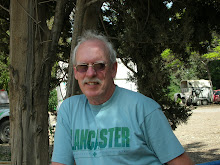Magazine publisher Levant wins Danish cartoon dispute
Joseph Brean, National Post
Published: Wednesday, August 06, 2008
After a year-long investigation, the Alberta Human Rights and Citizenship Commission has rejected a complaint by the Edmonton Council of Muslim Communities against former Western Standard publisher Ezra Levant over his republication of the Danish Muhammad cartoons.
The allegation that the February 14, 2006, issue of the now defunct magazine was likely to expose Muslims to hatred helped to spark a national debate about human rights law and free speech, and its rejection comes after similar complaints of Islamophobia against Maclean's magazine also failed.
. In a report on his investigation, which recommended the complaint not be referred for a panel hearing, AHRCC Southern Director Pardeep S. Gundara wrote that the cartoons are "stereotypical, negative and offensive," and they "do reinforce stereotypes," but they were "related to relevant and timely news" and were "not simply gratuitously included."
Yasmeen Nizam, a civil litigation lawyer in Edmonton and an ECMC director, said the Council is "certainly disappointed with the decision."
"Our whole idea was to educate people," she said. "We thought the cartoons did [expose Muslims to hatred], regardless of the context, because if you look at the broader context in a post-9/11 world, Muslims are at a higher risk of being discriminated against."
She said the Council decided to bring a human rights complaint because, unlike criminal hate speech prosecutions, the publisher's intent does not matter.
"We weren't shopping around for any laws. We thought this was a good way to bring our concerns to the attention of the public," she said. "Obviously we didn't want this to continue, so [another goal was] perhaps to discourage people from further maligning our prophet and our religion... We wanted this to have a deterrent effect."
She said she is unsure whether it actually has. What is certain is that this complaint, and others like it, have roused a broad contingent of free speech advocates to whom the bombastic Mr. Levant is a champion.
"I basically told them to f-off without using the swear word," Mr. Levant said of his response to the complaint, given during an interview with an AHRCC officer that he taped and broadcast on YouTube.
He said the complaint failed because he is "too big a fish for them to reel in."
"I was let go because I'm in the media every day. I've been down to [the U.S.] Congress to testify, I've been on CNN even. That's why I was let go, because if I caused them this much pain just in an investigation, imagine what the trial would be like," he said.
He does not consider this a victory, though.
"This censor approved what I wrote," he said. "His decision is not that I have freedom of speech. His decision is that I have his approval. I'm not interested in his approval. The only test of free speech is if I can write what he disapproves of with impunity. That's what freedom of speech is, to piss off some second-rate bureaucrat like Pardeep Gundara and know that you have the right to do so, because you're in Canada, not Saudi Arabia."
This complaint originally involved two other parties. A respondent, the Jewish Free Press, was dropped after the editor agreed in mediation to print a rebuttal. And an original complainant, Syed Soharwardy, national president of the Islamic Supreme Council of Canada, dropped out after he had a change of heart.
Now that it is resolved, Mr. Soharwardy thinks the AHRCC made the right decision, even though Mr. Levant "twisted this whole thing" to turn himself into a victim.
"I never wanted someone's freedom of speech curtailed. I always wanted to sit down, with some third party, for mediation, and have a discussion," he said. "I withdrew my complaint because I was adding fire to the debate."
He also came to regard the entire human rights complaints process with suspicion.
"It was a very amateur operation," he said, run by untrained people, which resulted in a "complete misunderstanding" of his goals.
"When I went through this whole process and I saw it very closely, I realized there was some serious loopholes in the processes," he said.
National Post
jbrean@nationalpost.com
Close
Presented by
.
Subscribe to:
Post Comments (Atom)

1 comment:
Finally a decent decision by a Human Rights Commission. It's too bad that the defendant has to foot the bill for court costs
Post a Comment